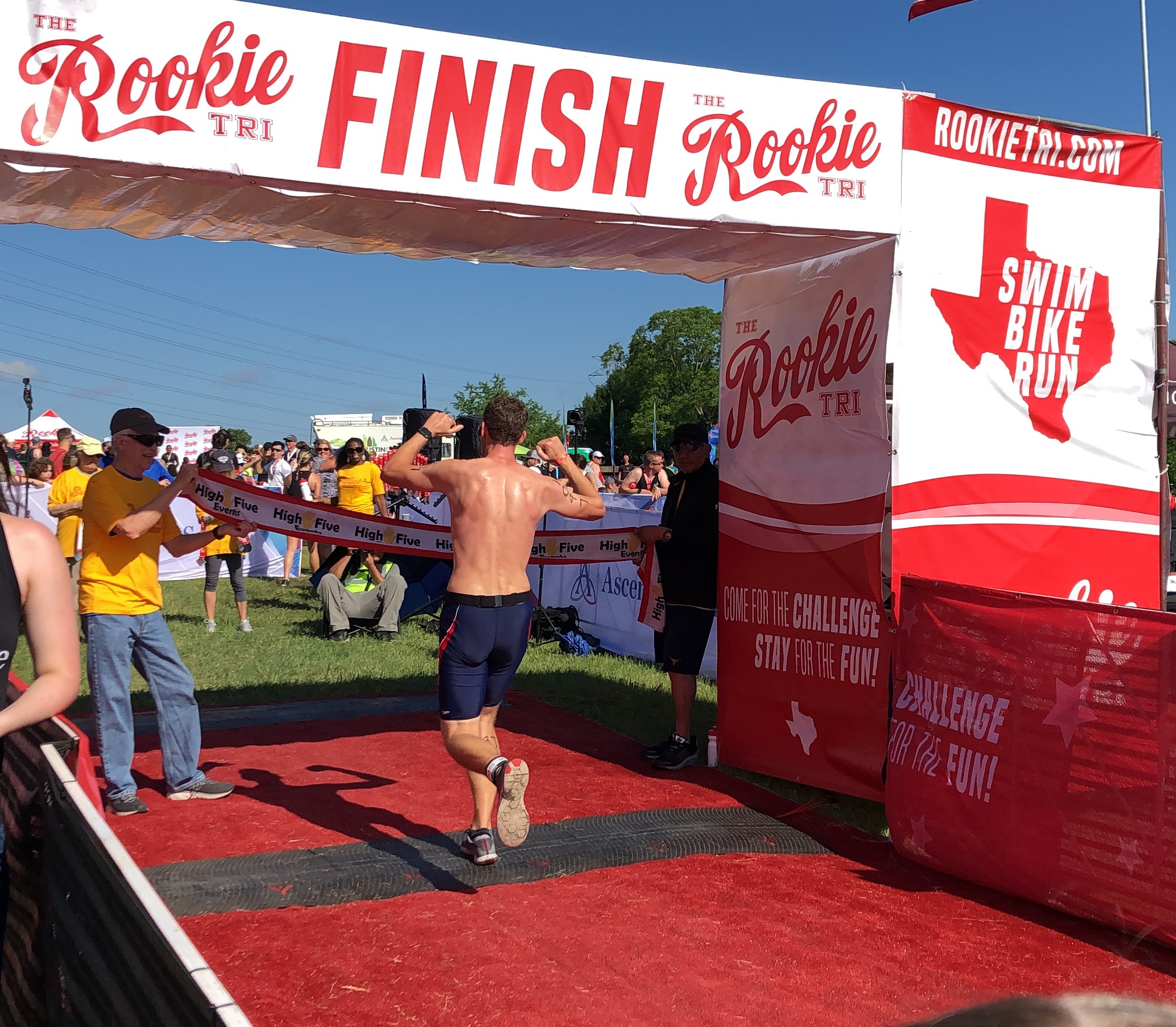
Racing with the Joneses
A few weeks ago I competed in my first triathlon. It was a rookie, super sprint race with a 300 meter swim, 11 mile bike, and a two mile run. I didn’t really do much training for it other than swimming and biking a few times. My goal was really just for the experience and to see what my times are as a baseline race.
Since the race is designed for rookies, they break up the participants by gender, age, and whether they’re rookie or veteran racers. So I competed against men in their upper 30s who were doing their first triathlon. Before the race they mark everyone’s age on their right calf, which added an interesting dynamic–everyone walking around wearing their age as a public badge.
I wasn’t sure where I would compare with the other guys in my group. Am I crazy for trying this? Way out of my league? Or what if I beat them all? (OK, I never actually thought that.)
The race began, and I started out really strong. I passed several guys in my group during the swim and was feeling confident about that.
During the bike and run portions of the race, I found myself looking at everyone’s calves as I passed them (or they passed me!) to determine how I was doing. If I passed someone younger than me, I felt great. If someone older passed me, then I needed to kick it up a few notches.
Because I was a beginner, I didn’t have a frame of reference for myself or my own goals. I just used the other racers around me as the lens for how I was doing as I went.
One problem with this is that it’s a really shallow view of the other racers. I’m only accounting for their age. I’m completely disregarding any other factors that would affect their performance. Maybe they are fighting an illness or disease. Or maybe they’ve done 20 triathlons beforehand. Maybe they’re doing a relay and this is their only leg to do. I have no idea what the bigger picture is. What goes on behind the label, the life experience, that’s what really tells the full story.
While this worked OK as motivation for my triathlon, it’s a horrible strategy for financial life. But it’s one people use all the time. We tend to look to our neighbors to size up what kind of car we should drive, what vacations we take, what we buy our kids. We are all familiar with this as the phrase, “Keeping up with the Joneses.” But just like only looking at the racers’ age, we’re only looking at others’ material possessions as our gauge. We aren’t accounting for their experiences and what’s underneath all of the stuff.
This approach to spending money isn’t based on a person’s individual values, it’s all about how others’ perceive them. For the healthiest strategy, everyone should have their own unique financial goals that are tailored specifically to their values. If you value being debt-free and retiring early, your life will (and should) look much different than someone who isn’t bothered by debt and plans to work forever. And that’s OK.
Your financial life is not a race, you’re not competing against anyone else. Not even people who are the same gender, age, and stage of life as you. So don’t compare yourself to see if you’re winning or losing based solely on the glitz you have to show. Just compare where you are now to where you want to be and make progress toward that finish line. It’s much more rewarding anyway. I can help you identify those goals and get you on track to reach them!
I’m doing my second triathlon this weekend. Feel free to come downtown at 6am on Memorial Day to cheer me on! This time I’m going in with my own goals and motivations. For the first race, I ended up right in the middle of the pack. This race has similar distances, except for the swim. The swim is over twice as long at 750 meters. My goals are to swim freestyle the whole time (no breaststroke breaks), kick butt on the bike (I borrowed my brother’s road bike, which should be way faster than my mountain bike), and pick up the pace some on my run. And if you know me, you know I already have a spreadsheet to track my race results and see if I’m getting faster in each leg!


